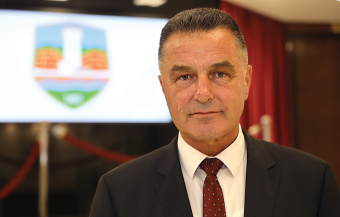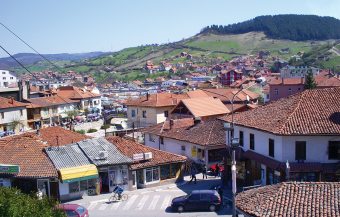
Novi Pazar, one of the most picturesque cities in the Sandžak region, has become known not only for its rich cultural and historical heritage but also for its pioneering efforts in environmental preservation. With its dynamic energy and youthful spirit, Novi Pazar is increasingly gaining attention as a leader in implementing green initiatives that have a long-term impact on the quality of life for its residents.
What sets the city apart is the diversity of its environmental projects. From launching composting programs and addressing environmental violations to investing in renewable energy sources, Novi Pazar demonstrates how a local community can actively combat climate change and protect the environment.
Nihat Biševac, the Mayor of Novi Pazar, shared details of the city’s achievements, challenges, and ambitious plans for the future. Learn how Novi Pazar has successfully integrated traditional values with modern ecological solutions to position itself as a model for other cities in Serbia and beyond.
Q: The city’s commitment to ecology is evident from the substantial funds allocated to environmental protection in the past year. Tell us more about that.
A: In the past year and a half, Novi Pazar has invested 160 million dinars in environmental protection projects. Our focus has been on initiatives that enhance the quality of life for citizens, increase energy efficiency, reduce emissions of harmful gases, and promote the transition to sustainable energy sources. These projects include modernizing boilers in public institutions, implementing district heating using biomass, and launching subsidy programs for citizens.
Much of the investment has gone towards upgrading boilers in educational and public institutions such as the Pendik Sports Hall, the Gymnasium, the Technical School, the Textile School, and Vuk Karadžić Elementary School. Previously, these institutions used coal, which caused significant air pollution, particularly during the peak heating season in winter. By switching to biomass pellets—a renewable resource—the city has reduced emissions of harmful substances like carbon dioxide and sulfur dioxide while improving energy efficiency. These projects align with the city’s long-term strategy to phase out fossil fuels in the public sector, setting a standard for similar-sized towns in Serbia.
IN FOCUS:
- Strategies for Planet Preservation
- Larvae as a Solution for Pollution and Sustainable Agriculture
- Drive Electric
Introducing a biomass district heating system for the Cultural Centre, the municipal building, and the Youth Centre is another milestone in reducing fossil fuel consumption in Novi Pazar. Installing heating pipelines and transitioning from coal to biomass decreases pollution in the city center and significantly boosts energy efficiency. Biomass is considered a renewable resource with a much smaller carbon footprint than coal, resulting in a dual benefit—contributing to global pollution reduction goals while creating a sustainable local energy resource.
The city has also launched a program to subsidize building renovations, including improving insulation (façades), replacing old windows, and transitioning from solid-fuel boilers to more environmentally friendly options. These subsidies help households reduce energy consumption during winter, reducing reliance on fossil fuels. This initiative, carried out in collaboration with the Ministry of Environmental Protection and the Ministry of Mining and Energy, aims to ease household heating maintenance while directly reducing energy consumption and heating costs.
Q: Novi Pazar has recently inaugurated a biomass heating plant to replace an outdated oil-powered facility. The city has also co-financed installing solar power plants in residential homes. What is the share of renewable energy sources in the city’s energy mix, and what are your plans for next year?

A: In 2022, Novi Pazar launched a biomass and gas heating plant with a capacity of 20.3 MW, significantly reducing harmful emissions. In its first heating season, sulfur dioxide emissions decreased by 47 percent, PM10 particles by 19 percent, PM2.5 particles by 20 percent, and nitrogen dioxide by 9 percent. These figures demonstrate the impact of transitioning to renewable energy sources, an essential step in safeguarding citizens’ health and protecting the environment. We also co-financed solar panel installations on family homes, further encouraging the adoption of renewable energy at the household level. In the coming years, we plan to replace all remaining district heating boilers with biomass and gas systems, achieving complete independence from fossil fuels in our heating network.
Q: Could you tell us about the air quality in Novi Pazar and why it is essential to draft an air quality plan?
A: Air quality during winter is compromised due to Novi Pazar’s geographical location, heavy traffic, and the widespread use of solid-fuel boilers in homes. Developing an air quality plan has become a top priority to address this complex issue. A public consultation on the plan is forthcoming, after which it will be adopted by the city assembly. This strategic framework will guide the implementation of measures to improve air quality. Planned initiatives include optimizing traffic flow, gradually transitioning boilers to renewable energy sources, and expanding pollution monitoring systems. The plan will also enable Novi Pazar to apply for funding from international donors and relevant ministries to secure additional resources for pollution reduction programs.
Interview by Milena Maglovski
Read the whole interview in the new issue of the Energy portal Magazine RESPONSIBLE BUSINESS

